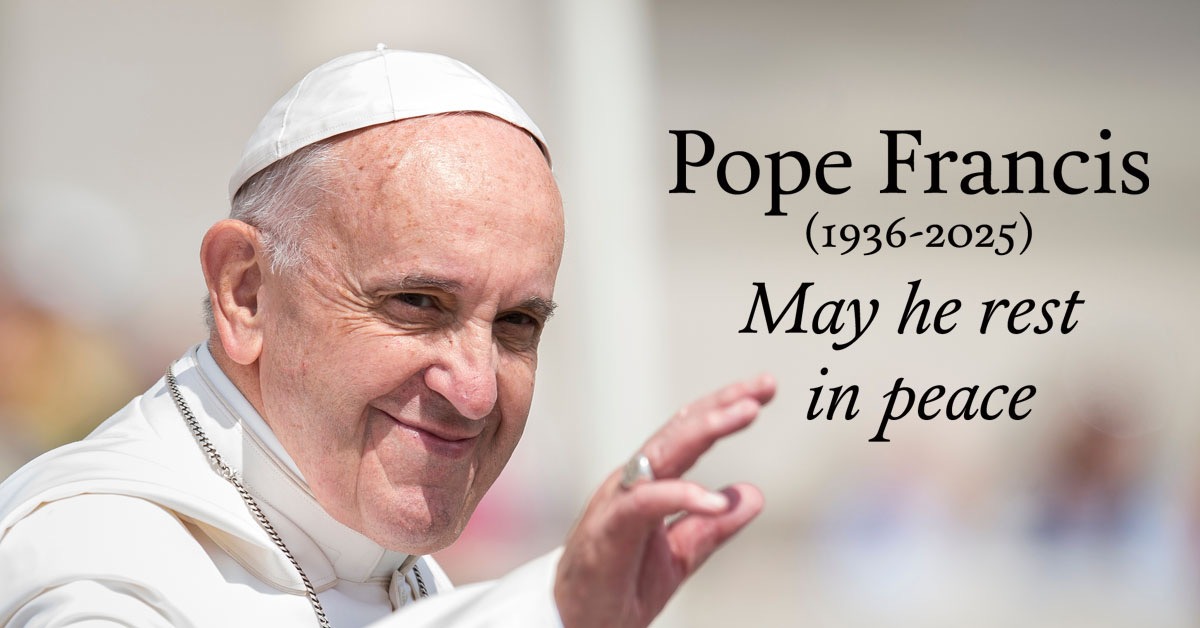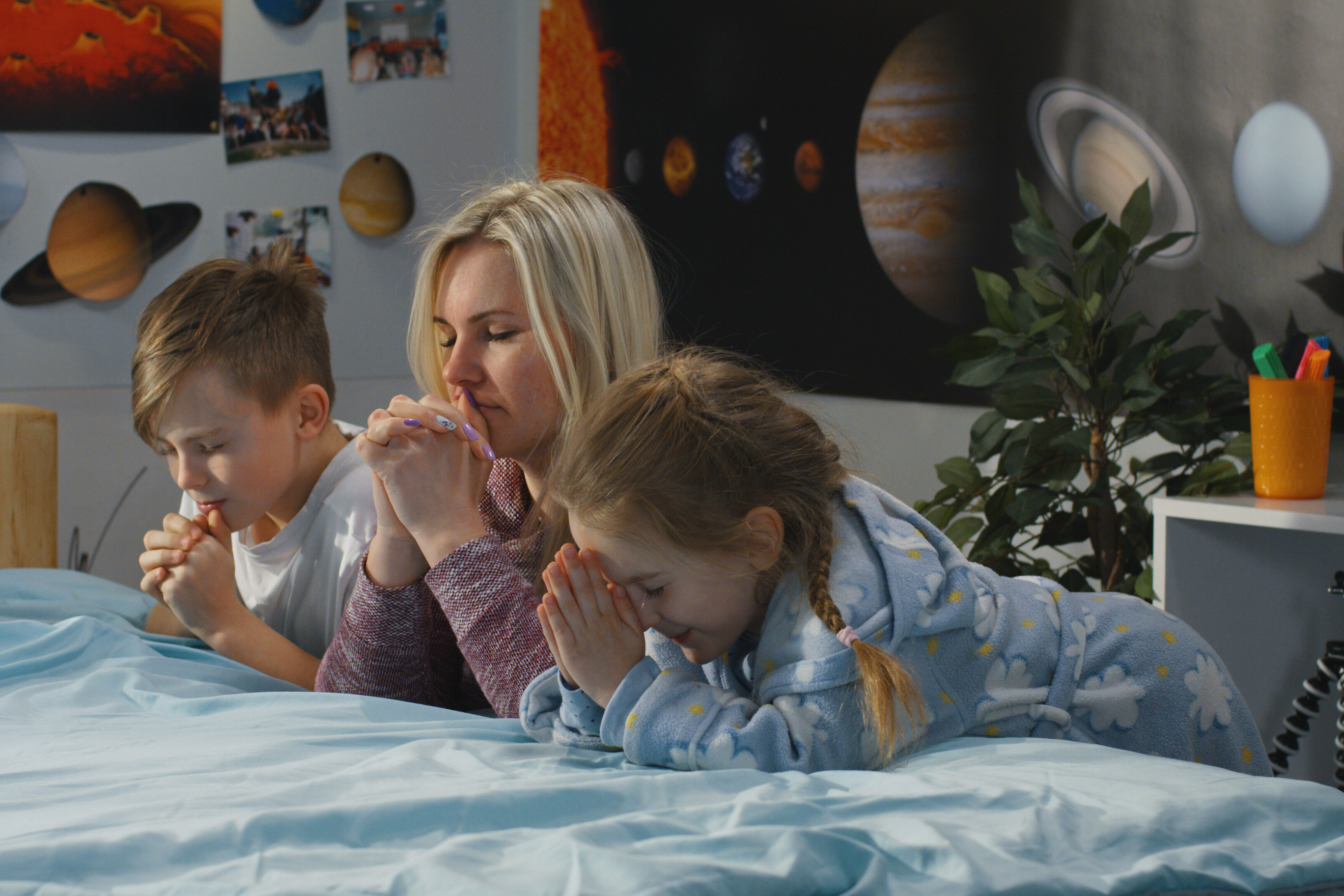Lent is almost over, it feels like only yesterday that the ashes were imposed on our foreheads and we were firmly told: ‘Remember You are Dust and to Dust You Shall Return’ (Gen 3:19). The same verse repeated year after year, became more relevant than ever during a worldwide pandemic where the fragility of life is on display for believers and non-believers to see.
Lent 2020 will certainly be one to remember, where the things we had planned to give up suddenly became almost insignificant in comparison to the sacrifices we were going to be forced to make – the greatest of which was the forced separation from the Sacraments.
The importance of the ‘Domestic Church’ and liturgical life within the household has suddenly taken centre stage and has now become vital for the flame of Faith to be kept alive. Catholic parents are asked to take on a greater leadership in this wasteland, making sure that no one is lost along the way as we wait to physically return to our Mother Church and once again become one in communion with Christ.
As the Triduum draws near, many Catholic families are searching for advice and help on how best to live this incredibly important time.
I would start by saying that we cannot and should not try to reproduce everything that happens during the triduum. We do not have the resources, the buildings or the faculties. However, what we can do is unite ourselves with Christ’s journey during his Passion, death and resurrection and highlight some important moments where our life is enlightened by these days.
Maundy Thursday
The Mass of the Lord’s supper is full of meaning. It centres on the priesthood and the Eucharist, but to centre a domestic celebration on this would be to place at its core an absence rather than a presence. We will pick up another of the strands of the evening’s liturgy, ‘the washing of feet’. We have been doing a domestic washing of the feet liturgy on Maundy Thursday for many years.
We sit in our living room and fill a jug with water and scented oils and prepare the best towel we have in the house (embroidered by my grandmother).
The same gospel is proclaimed as at Mass and explained to the children.
We then proceed to wash each other’s feet while singing as best we can some suitable hymns. (For example: A New Commandment I Give Unto You, Let Me Wash Your Feet, Ubi Caritas or others.)
In our house, we start from the Father who as head of the family, represents Christ in our domestic church. He washes the family’s feet from the eldest to the youngest and then each in turn does the same, until the youngest does it with great excitement!
There will be a few giggles here and there, but the sign of lowering ourselves, of pouring scented water, of gently drying and kissing each other’s feet is so powerful that even the younger children understand what being like Jesus is all about.
Love one another as I have loved you. How did he love us? He lowered himself completely, he assumed a position of servant. He loved unto death. Death of a sinner, death on the cross.
It is in the family that the children first experience this self-giving love of service.
Good Friday
On Good Friday the emphasis will remain the veneration of the Cross and we will also retain the Good Friday Prayers. We will read the readings and invite the whole family to kiss the crucifix in gratitude for what Christ has done, but also beginning to explain to the children that each of us has a cross in our own lives without which we cannot be saved.
After this we shall pray the Good Friday prayers which are one of the best examples of the Church’s role interceding not just for the faithful but for the whole world. For us as lay people, this should be even clearer. We live in the world, we work, study and shop among people of every faith and none. In baptism we were given a share in Christ’s threefold office of Priest, Prophet and King and praying for the world in which we live is our priestly duty.
In the evening we will also pray the Stations of the Cross using the images which the children prepared as an art project the previous week. These were placed around the house beginning in the kitchen and ending in the little girls’ bedroom and we will set off on a journey around our domestic Jerusalem. We will learn the responses and will sing the verses from the Stabat Mater. Our daughter will hold a candle in front of each station as we move through the house, up the stairs to Calvary!
Our family tradition for years has been to watch the Passion from ‘Jesus of Nazareth’ with the whole family and ‘The Passion of the Christ’ with the older children once the younger ones are in bed.
Some of us – excluding the children who will have lighter meals throughout the day – will start fasting until the Easter Vigil.
The Easter Vigil
The Easter Vigil is the climax of our faith, a night of waiting, a night of great expectations and trepidation that culminates in the announcement that Christ is Risen from the dead and the forbidden A-word is finally restored in the Liturgy. This will be the first time in our life where the proclamation of the Risen Christ will have to happen within the domestic liturgy. Since the vigil is also baptismal in character, we’ll try to reflect that too.
We will begin in the garden with the new fire – symbol of the light of Christ – and process into the house with our domestic Paschal Candle lit. All our children still have their baptismal candles and they will light those too.
We will sing the Exultet and have a shortened liturgy of the word with an explanation of the history of our salvation. We will sing the Alleluia and read the Gospel of the Resurrection. We will sing the Litany of Saints and renew our baptismal promises and finally have a feast together after the fasting, with lamb (if we can find it) and plenty of chocolate eggs.
It will be an Easter to remember and God willing we will never again take for granted a single liturgy.

